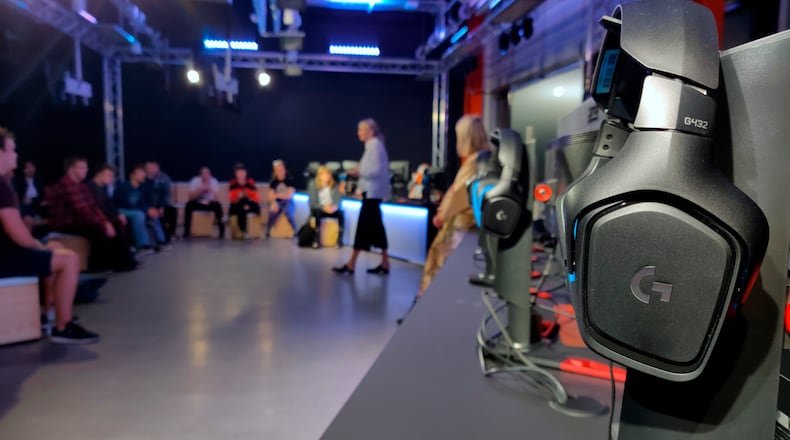Each week, five high school coaches will discuss one issue that affects Georgia high school sports. | Last week: Officiating
At Issue: Competitive gaming has evolved from a hobby in damp basements to a multi-million dollar industry featuring high school, college and professional esports teams across the nation. Pro teams compete on ESPN's networks; fledgling college programs are offering scholarships, and high school associations, including the GHSA, are crowning state champions in various competitive video games.
What is esports? According to PlayVS, the company that conducts the GHSA esports state championships, esports is defined as follows:
“Esports officially stands for electronic sports, not to be confused with video games. It’s much more than that. What sets it apart is the level of organized competitive game-play between teams and its own strict set of rules and guidelines. Esports is about teamwork, communication, strategic thinking and leadership — in all the same ways that traditional sports are, and then some.”
The GHSA added esports in 2018 and has awarded state championships in two games: League of Legends and Rocket League. The league started with around 60 teams and grew to around 140 teams in the second year.
League of Legends, or “League” for short, is a multiplayer online battle arena (MOBA). The game requires teams to compete in matches, lasting anywhere from 20 to 50 minutes on average. In each game mode, teams work together to achieve a victory condition, typically destroying the core building (called the Nexus) in the enemy team’s base after bypassing a line of defensive structures called turrets, or towers. Rocket League, the other GHSA sanctioned esport, is a virtual vehicular soccer game. Of the two, it is more like your typical sport, where the goal is to get the ball in the net. Think soccer, but with rocket-powered RC cars.
Both games involve multiple players, require teamwork, skill, critical thinking, practice and prep.
Can we expect esports to boom at the high school level?
The Skinny: Oconee County football coach Travis Noland is a competitive person, but video games never were his thing.
“You’d be surprised how few times I’ve ever played a game,” Noland said. “We just couldn’t afford it in my household growing up.”
It hasn't hurt his coaching career. Noland led Oconee County to a runner-up finish in the state championship game in Class AAAA in 2019. The Warriors lost to Blessed Trinity 17-14 in the title game, Noland’s seventh season at Oconee County.
So what does a coach, who has never spent much time in a virtual world, think about the state’s governing body sanctioning esports?
Noland: "I've always believed that whatever students were involved with, that kid is somebody's son or daughter and they have just as much right to success and to be able to achieve as a football player does or a basketball player or a revenue-sport player does.
“But I am not questioning the GHSA because they're our governing body, but obviously, esports came from somewhere, whether that was a political move or somebody thought those kids should be recognized as state champions. You know, at some point, what is considered athletics?
“In my time of being involved with athletics, it always involves something physical, strenuous. Competition cheerleading, when it was approved several years ago, was somewhat controversial. But if you watch those girls perform, it is unbelievable some of the things they can do, physically and mentally. So I don’t know where a video game falls into that. But it’s equivalent to some of the other sporting events that have state championships attached to it. But who am I to say? I’ve never played those games to know what kind of skill level it takes to be a champion. So I guess that’s my two cents worth on it.
“I’ve known several kids, one at Oconee County just a couple years ago who was wheelchair bound, who could tell you the batting average of everybody on the Braves rosters, and he knew everything about the Falcons and their roster and University of Georgia and their roster. But he would never be able to play any kind of sport. So the esports might open up an avenue for kids such as him. And those who just physically don’t have the ability to participate in a contact or a physical sport, but they love competing and it gives them a chance to be competitive, should be recognized for it.”
AT ISSUE: esports
• Travis Noland, Oconee football coach
• Penny Pitts Mitchell, GHSA esports director
• Lucas Bailey, Georgia State esports coach
• Ashely Hodge, Colquitt County SuperCoach
• Anna Cannon, esports player's mom
» MORE: Previous topics
About the Author
The Latest
Featured

